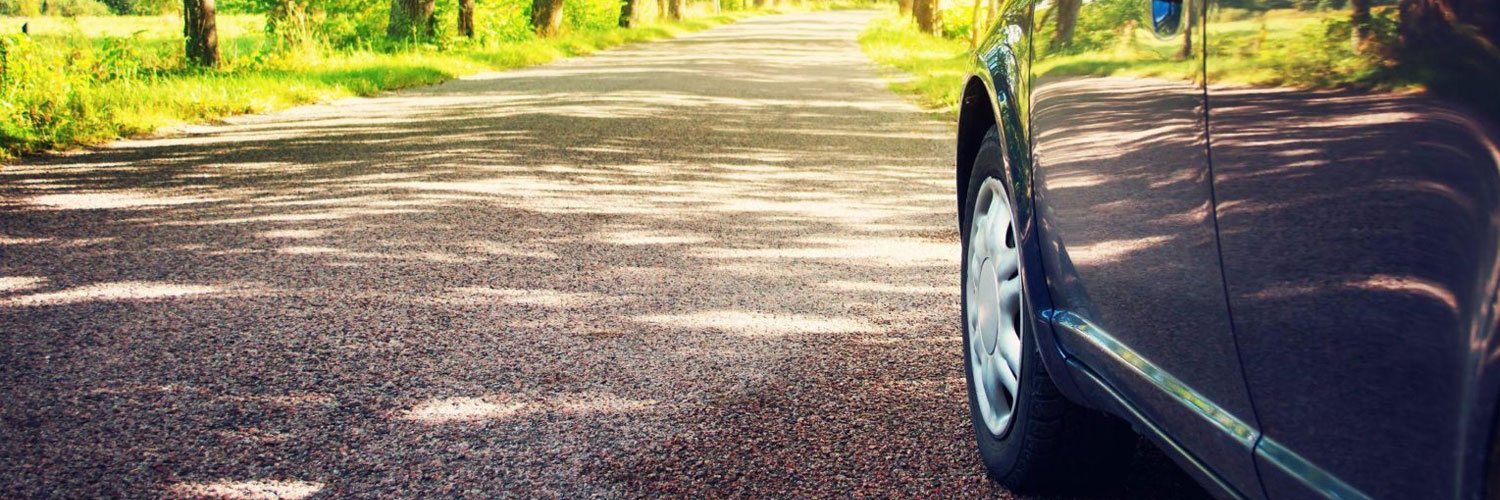Summer Tires in Canada

Summer Tires (aka high-performance tires) offer the best road traction in hot and dry weather.
Due to their remarkable performance, High-Performance Summer Tires are now a more typical choice for everyday automobiles than simply luxury and sports cars.
These tires have a specific tread design and a shallow tread depth, which provides the tires with:
- Excellent response
- Quick braking
- Tight cornering
Summer Tire treads contain fewer grooves, allowing more general rubber to stay on the road when driving. Shallower treads additionally keep tire performance higher when the rubber is nearing its speed or agility limits. Summer Tires can also function well in mild, wet circumstances, such as brief seasonal rain. The tread design prevents hydroplaning by rapidly removing water from the treads.
When Should You Get Summer Tires?
When temperatures rise over 7 °C, install Summer Tires on rims. They provide excellent traction on wet and dry roads thanks to their specific tread designs and tire compounds.
Summer Tires also give excellent curve stability and kilometer performance in hot weather. This means you may drive your car comfortably on both dry and wet, slick roads during the summer months. However, keep in mind that Summer Tires are not suited for winter circumstances, so be sure to change your tires as the season dictates.
- Summer Tires offer superior all-around performance throughout the warmer months. They have a fairly tough compound that softens in milder weather, allowing them to adapt to both dry and wet roads.
- Summer Tires have fewer sipes than snow tires but have specifically engineered tread bars to reduce hydroplaning. These provide increased grip both longitudinally and laterally in warm conditions, ensuring excellent traction on both wet and dry roads.
- While Summer Tires can withstand most weather patterns, they are not appropriate for more complex, colder areas. They have a tougher rubber compound with little natural rubber; unlike snow tires, which harden and become brittle below +7 degrees C. Having said that, they are engineered to withstand higher temperatures without becoming soft. Summer tires have lower friction and hence use less fuel.
- Summer Tires often feature a simple block-shaped tread design, offering a large footprint with the ground. This provides superb handling and has a significant impact on stopping distance.
Can You Drive On Summer Tires In The Rain?
Many drivers believe that High-Performance Summer Tires are primarily intended for dry weather performance; nevertheless, summer tires also provide outstanding grip in rainy conditions. Summer tires include a broader tread and soft rubber compounds, providing responsive handling in dry and rainy situations. They also have extensive grooves for wet grip and hydroplaning protection.
A Summer Tire, such as the Bridgestone Potenza RE050A, will outperform an all-season tire on dry surfaces when cornering and stopping. Summer Tires also work well in showers; well wet traction is still not an all-season feature.
Why Do Summer Tires Outperform In Heat And Rain?
Summer Tires are designed to provide exceptional road grip, whether it’s sweltering outside, slightly damp, or pouring excessively. They are made of a tread compound (the mixture of rubber and additives that make up the tread) that contains sticky additions for wet road traction.
However, this tread combination provides enough stability to ensure that the tires stand up and maintain their structure when the heat is on. On hot asphalt, this reduces rolling resistance.
While many people may be surprised to learn that summer tires surpass All-Season Tires both in wet and dry traction, this is something that won’t: Winter traction is unavailable with performance tires. They become hard in cold temperatures and are not a good choice in ice or snow.
Summer And All-Season Tire Lifespans
Summer Tires outperform winter tires on dry terrain, but their performance suffers significantly in snow and ice. They typically last 65,000+ kilometers, based on driving patterns and environmental circumstances.
As the name implies, All-Season Tires work well in all weather conditions, hot and cold. They typically have a lifespan of roughly 100,000 kilometers.
What’s the Best Type of Tire For You?
The answer is not as straightforward as it appears. The truth is that the tires you select should be dependent on the environment you reside in, and the road surfaces you frequently travel on. If you live in an area with challenging winter weather, switching to a dedicated pair of winter tires is the best and safest choice.
Should You Purchase Summer Tires?
High-Performance Summer Tires are a fantastic choice if you reside in an area that seldom snows and the temperature usually is 7 degrees or higher during your regular driving periods. In warm climates, use performance tires.
If you live in a location where the weather is unpredictable, where you can experience freezing rain or snow showers in the fall or spring, All-Season Tires are a better option.
Take it to Trail!


